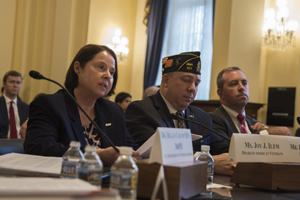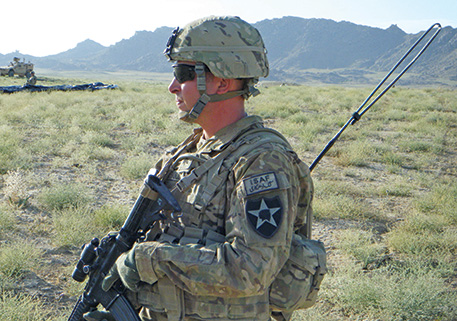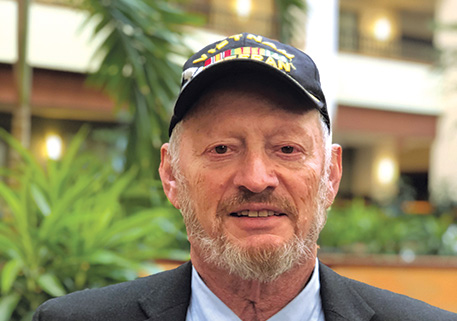
In October, DAV and other veterans organizations testified before the House Veterans’ Affairs Committee (HVAC) on a draft bill that proposes an 11 member independent commission be established to review VA’s health care infrastructure and to make recommendations for realignment, consolidation or closure of VA hospitals and clinics.
The draft Asset and Infrastructure Review Act of 2017—proposed by HVAC Chairman Phil Roe—would direct the department to take a comprehensive look at its assets and infrastructure and devise a plan to “right-size” VA. The legislation is modeled on the Department of Defense Base Realignment and Closure program, commonly known as BRAC, which resulted in the closure or realignment of 350 military bases around the world since 1988.
While supporting the overall goal of reviewing and realigning VA’s infrastructure to meet changing needs, National Legislative Director Joy Ilem voiced concern about the lack of openness and transparency in the proposed asset review process. She testified that by using the BRAC statute as the starting point for the draft legislation, the bill inherited a closed process regarding information sharing and deliberations.
For example, although the bill requires that meetings of the commission be open to the public, the legislation specifies that “proceedings, information and deliberations” of the commission only be made available, upon request, to a very limited number of members of relevant committees of the House and Senate.
“While there may have been national security reasons for including such limits during a military BRAC process, there should be no such concerns for VA facility decisions,” testified Ilem before the committee. “Therefore, we recommend that the bill be amended so that whenever decisions, reports or other information is transmitted or made available to the commission, Congress or the president, it should also be made available to the public at the same time.”
Another concern Ilem raised about the draft legislation was the lack of stakeholder involvement from veterans who use the system.
“[Veterans] who will be most affected by the outcomes of this asset review process be must be fully engaged from the beginning,” Ilem said. “Not only will this result in a better set of decisions, it will also help build the support and confidence necessary to enact and enforce the recommendations and outcomes of the asset review process.”
DAV and its partners in the Independent Budget (IB) (Paralyzed Veterans of America and Veterans of Foreign Wars) have advocated for years to resolve VA’s many infrastructure challenges, particularly inadequate funding, ineffective sharing authorities and inflexible leasing authorities. The IB group has repeatedly testified to Congress that VA should have the ability to build, buy, lease or share health care facilities when and where veterans require them, as well as the flexibility to construct, modernize, realign, consolidate or close facilities as veterans’ needs and preferences change.
Chairman Roe indicated the draft legislation is a starting point in the conversation on the best way to review VA’s extensive assets and medical infrastructure located across the country.
Ilem testified that while the asset review is necessary and should be done regularly, it must be fully integrated into other reforms also underway to improve veterans health care. Additionally, infrastructure changes should be made only after decisions are finalized regarding how VA will deliver health care in the future. Finally, Ilem recommended that “no VA facility be closed until a replacement facility is opened or an arrangement with community partners has been established.”
“When VA closes a medical facility, the most affected stakeholders are veterans who rely on the system for some or all their medical care,” said Ilem. “Decisions about how and where to deliver medical care should never result in veterans losing access to care.”
The legislation is expected to receive further consideration from the committee in November.






